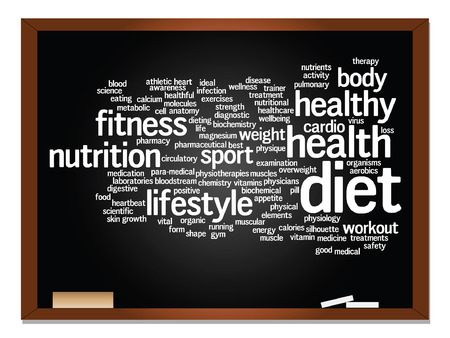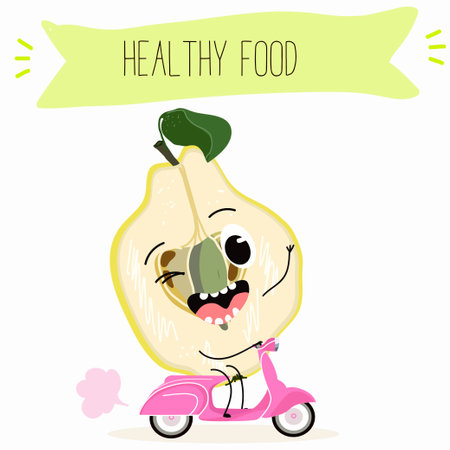Introduction to Bone Health and Nutrition
Strong, healthy bones are the foundation of an active and fulfilling life, especially as we recover from injuries or surgeries. In the UK, where our climate and lifestyle can sometimes challenge our bone health, understanding how nutrition plays a vital role in recovery becomes even more important. After a fracture or orthopaedic procedure, your body needs extra support to rebuild bone tissue and regain strength. This is where home cooking comes into its own. By preparing meals at home, you have full control over the ingredients, ensuring you get all the essential nutrients needed for bone healing—such as calcium, vitamin D, protein, and other minerals. Traditional British recipes, often rich in these nutrients, can be both comforting and beneficial during recovery. Embracing home-cooked meals not only supports your physical healing but also provides a sense of comfort and routine during what can be a challenging time. In this article, we’ll explore how easy-to-make and beloved British dishes can become powerful tools in your journey back to bone health.
2. Essential British Ingredients for Strong Bones
Building strong bones through diet is a cornerstone of recovery and long-term health. The traditional British kitchen offers a range of nourishing ingredients naturally rich in calcium, vitamin D, magnesium, and protein—all crucial for bone strength and repair. Here’s an accessible guide to these essential foods and practical tips on how to source them locally across the UK.
Key Nutrients for Bone Health
| Nutrient | Why It Matters | Traditional British Sources |
|---|---|---|
| Calcium | Main mineral in bones; supports structure & density | Dairy (milk, cheese, yoghurt), tinned sardines, leafy greens (kale, watercress) |
| Vitamin D | Aids calcium absorption; crucial in cloudy UK climate | Oily fish (mackerel, salmon), eggs, fortified cereals, sunlight exposure |
| Magnesium | Supports bone formation & vitamin D metabolism | Nuts (hazelnuts, walnuts), whole grains (oats, barley), pulses (peas, beans) |
| Protein | Essential for bone matrix and repair after injury or surgery | Lean meats (chicken, beef), fish, eggs, dairy, legumes |
| Vitamin K | Helps bind calcium to bone tissue | Cabbage, broccoli, spring greens—staples in many British dishes |
Sourcing Ingredients Locally in the UK
Dairy Products: Opt for locally produced milk, cheeses such as Cheddar or Caerphilly, and live yoghurt from your nearest farm shop or supermarket.
Oily Fish: Fresh mackerel or salmon from your fishmonger or supermarket counter are excellent choices. Tinned sardines and pilchards are affordable and convenient alternatives.
Leafy Greens: Seasonal greens like kale and watercress can be found at local greengrocers or farmers’ markets. These not only boost calcium intake but also add flavour to soups and stews.
Pulses & Grains: Look for British-grown oats and barley—fantastic in traditional porridge or hearty broths. Peas and broad beans are readily available frozen or fresh when in season.
Nuts: While some nuts are imported, hazelnuts and walnuts grown in the UK can sometimes be found at specialty food shops or local markets.
Practical Tips for Everyday Use
- Add grated hard cheese to mashed potatoes or sprinkle over steamed vegetables.
- Toss flaked smoked mackerel into salads for a boost of vitamin D and protein.
- Mash tinned sardines onto wholemeal toast with a squeeze of lemon as a quick snack.
- Blend leafy greens into traditional soups like cock-a-leekie or Scotch broth.
- Use oats not just for porridge but in crumbles or as a crunchy topping for baked dishes.
Your Next Step: Building Your British Pantry for Better Bones
Sourcing nutrient-rich foods locally is both practical and rewarding. By focusing on time-honoured British ingredients tailored for bone health, you can enjoy comforting meals that support your recovery journey every day.

3. Easy British Breakfasts for Bone Recovery
Starting your day with a nourishing breakfast is essential, especially when your body is focused on healing. In the UK, traditional breakfasts can be both comforting and beneficial for bone health. Choosing the right ingredients ensures that you are getting key nutrients such as calcium, vitamin D, and protein – all crucial for bone repair and strength.
Porridge: A Comforting Classic
Porridge made from rolled oats is a staple in many British homes. Not only is it gentle on the stomach, but it also provides a slow release of energy to keep you going throughout the morning. To boost its bone-supporting benefits, prepare your porridge with semi-skimmed or fortified plant milk and top it with chopped nuts or seeds for added calcium and magnesium. Stirring in dried fruits such as apricots or figs introduces natural sweetness along with extra minerals that support bone recovery.
Kippers on Toast: A Protein-Packed Option
For those who prefer a savoury start, kippers on toast offers a traditional taste of Britain while delivering an excellent source of vitamin D and omega-3 fatty acids. These nutrients play a vital role in bone health and overall recovery. Simply grill lightly smoked kippers and serve them over wholemeal toast – this combination provides not only healthy fats and protein but also valuable fibre to aid digestion.
Customising Breakfasts for All Ages
Whether you are preparing breakfast for yourself, children, or older adults, these recipes can easily be adapted. For younger family members, consider using milder fish or smaller oat portions, while older adults may appreciate softer textures and additional fruit toppings. The aim is to make breakfast appealing and easy to eat while maximising nutritional value for healing bones.
Keeping It Simple
Convenience doesn’t have to mean compromising on nutrition. Both porridge and kippers on toast can be prepared quickly with minimal fuss, making them ideal for anyone recovering from injury or surgery. By choosing these simple yet traditional British options, you’re supporting your body’s recovery process with every bite.
4. Wholesome British Lunches and Suppers
When supporting bone health during recovery, traditional British lunches and suppers provide both comfort and essential nutrients. Here, we offer step-by-step recipes for two classic dishes—shepherd’s pie and leek & potato soup—each thoughtfully adapted to boost calcium, vitamin D, magnesium, and protein for optimal bone strength.
Shepherd’s Pie: A Hearty Classic
Ingredients
| Ingredient | Nutritional Benefit |
|---|---|
| Lean lamb mince (or beef mince) | High-quality protein & iron |
| Carrots, peas, onions | Vitamins C & K, antioxidants |
| Worcestershire sauce & herbs | Flavour without added salt |
| Potatoes (for mash) | Potassium & fibre |
| Semi-skimmed milk & low-fat cheese (for mash) | Calcium & vitamin D |
Step-by-Step Method
- Sauté diced onions in a non-stick pan; add mince and cook until browned.
- Add chopped carrots and peas; stir in Worcestershire sauce and mixed herbs.
- Simmer with a splash of water until vegetables are soft.
- Meanwhile, boil potatoes until tender. Mash with semi-skimmed milk and top with low-fat cheese.
- Spoon the mince mixture into a baking dish, spread the mash over the top, and bake at 180°C for 20 minutes until golden.
Nutritional Tips:
- Opt for extra vegetables for added fibre and micronutrients.
- Add chopped spinach or kale for additional calcium.
Leek and Potato Soup: Comfort in a Bowl
Ingredients
| Ingredient | Nutritional Benefit |
|---|---|
| Leeks | Vitamin K & antioxidants |
| Potatoes | Magnesium & potassium |
| Semi-skimmed milk or fortified plant-based alternative | Calcium & vitamin D |
| Low-sodium vegetable stock | Sodium control for heart health |
Step-by-Step Method
- Sauté sliced leeks in a little olive oil until soft.
- Add diced potatoes and pour over vegetable stock to cover. Simmer until potatoes are tender.
- Add milk or fortified alternative; blend until smooth for a creamy texture.
Nutritional Tips:
- Add a handful of parsley or chives before serving for extra vitamin K.
The above recipes not only celebrate the best of British home cooking but also ensure you receive vital nutrients needed for bone healing and strength. With simple ingredients and easy steps, these meals can be enjoyed by anyone seeking nourishment during recovery or aiming to maintain healthy bones long-term.
5. Traditional British Comfort Foods with a Healthy Twist
British comfort food holds a special place in many hearts, especially during periods of recovery. The familiar flavours and nostalgic aromas of dishes like fish pie and scones can be both soothing and uplifting. However, for those focused on bone health, traditional recipes may need gentle adaptation to provide extra nutritional support without compromising on taste or comfort.
Healthier Fish Pie: A Calcium-Boosting Classic
Fish pie is a beloved staple in British cuisine, traditionally rich and creamy. To make it more bone-friendly, consider using oily fish such as salmon or mackerel, which are naturally high in vitamin D and omega-3 fatty acids. Swap regular milk for fortified plant-based alternatives or low-fat dairy to increase calcium content. Add steamed broccoli or spinach to the filling for an extra dose of bone-strengthening nutrients, and top with mashed sweet potato instead of white potato for added vitamins.
Scones Reinvented: Delicious and Nutritious
No British teatime is complete without scones. For a healthier spin, use wholemeal flour to boost fibre and replace some butter with low-fat yoghurt or cottage cheese to add protein and calcium. Incorporate dried figs or apricots for natural sweetness and additional minerals essential for bone repair. Serve your scones with reduced-sugar jam and a dollop of Greek yoghurt rather than clotted cream to keep things light yet satisfying.
Gentle on Recovery, Big on Flavour
When recovering from bone-related injuries or surgery, its important that meals are not only nutritious but also easy to digest. Stews, casseroles, and soups using lean meats, lentils, and plenty of root vegetables are comforting choices that provide sustained nourishment. Flavour your dishes with fresh herbs like parsley or thyme instead of excess salt—these herbs are rich in micronutrients beneficial for healing.
By making thoughtful tweaks to traditional British favourites, you can enjoy the comfort of home-cooked meals while actively supporting your journey towards stronger bones and better health.
6. Tips for Meal Planning and Safe Food Preparation
When cooking for bone health—especially during recovery—it’s important to make your kitchen routines as convenient, safe, and enjoyable as possible. Here are some user-friendly tips tailored for the British home cook, focusing on weekly meal planning, prepping ahead, and modifying recipes to suit different appetites and abilities.
Smart Weekly Meal Planning
Begin with a simple meal plan each week. Choose recipes that use similar ingredients to minimise waste and make shopping easier—think root vegetables, lean meats, and dairy staples commonly found in British supermarkets. Write a shopping list before heading out, and consider online delivery if mobility is an issue. Planning meals around traditional dishes like cottage pie or fish pie can bring comfort while supporting bone health.
Prepping Ahead for Convenience
Batch-cooking is your friend during recovery. Prepare larger portions of dishes such as vegetable soups or stews, then freeze individual servings. This way, you’ll always have a nutritious meal ready when energy is low. Pre-chop vegetables or buy pre-prepared options from the supermarket to save time and effort. Store cooked meals in easy-to-handle containers with clear labels and dates.
Adapting Recipes for Your Needs
If your appetite has changed or chewing is difficult, modify recipes by using softer ingredients or pureeing foods like root vegetable mash or fish cakes. For those with limited strength or dexterity, opt for slow-cooker recipes that require minimal handling—just add ingredients in the morning and let it cook throughout the day.
Safety First in the Kitchen
Prioritise safety by keeping worktops clutter-free and using non-slip mats under chopping boards. If balance is a concern, keep frequently used items within easy reach to avoid unnecessary stretching or bending. Invest in lightweight pans and ergonomic utensils designed for comfort.
Involve Family and Friends
If possible, involve loved ones in meal prep; it not only makes cooking more enjoyable but also provides support when needed. Sharing tasks can turn mealtimes into positive social experiences, which is beneficial for overall wellbeing during recovery.
By following these practical tips for meal planning and safe preparation, you can continue enjoying delicious British favourites while supporting your bone health at home.
7. Resources and Support in the UK
Recovering from a bone injury or surgery can feel overwhelming, but you are not alone. Across the UK, a range of reputable organisations, community programmes, and online resources are available to support you and your family on your journey to better bone health through nutrition and lifestyle changes.
National Organisations
The National Osteoporosis Society (NOS): Now known as the Royal Osteoporosis Society, this charity offers expert advice on bone health, diet, and rehabilitation. Their website features nutritional guides, downloadable meal plans, and patient forums where you can connect with others facing similar challenges.
NHS Choices: The NHS provides evidence-based information on recovery diets, calcium and vitamin D intake, and practical tips for meal preparation during recovery. You can also speak to your GP for referrals to dietitians or specialist bone clinics in your area.
Community Programmes
Many local councils run Healthy Eating Initiatives that include cooking classes focused on traditional British recipes modified for improved bone health. These classes often welcome people recovering from injuries or surgeries, offering hands-on guidance in preparing nourishing meals.
Age UK and Silver Line: These charities support older adults with nutrition advice and sometimes provide meal delivery services or volunteer visits to help with shopping and cooking.
Online Resources and Support Groups
For those seeking support from home, several websites offer tailored guidance:
BDA (British Dietetic Association): Practical resources and fact sheets about nutrition for bone health.
Versus Arthritis: Information about maintaining joint and bone health through food, plus community forums for sharing experiences.
Mumsnet & Gransnet: Popular online communities where patients and carers discuss recipe ideas, share recovery stories, and recommend local services.
Additional Tips for Accessing Support
If you have specific dietary needs—such as being vegetarian or managing food allergies—ask your GP about referral to an NHS dietitian. Libraries often host free talks or workshops about healthy cooking for recovery. Don’t hesitate to reach out to local community centres; they frequently run peer-led cookery groups where traditional British recipes are adapted for various health needs.
Together Towards Recovery
No matter where you are in your recovery journey, there are trusted sources throughout the UK ready to help you access personalised advice, practical cooking tips, and emotional encouragement. Connecting with these resources can make your path to stronger bones both enjoyable and successful.

